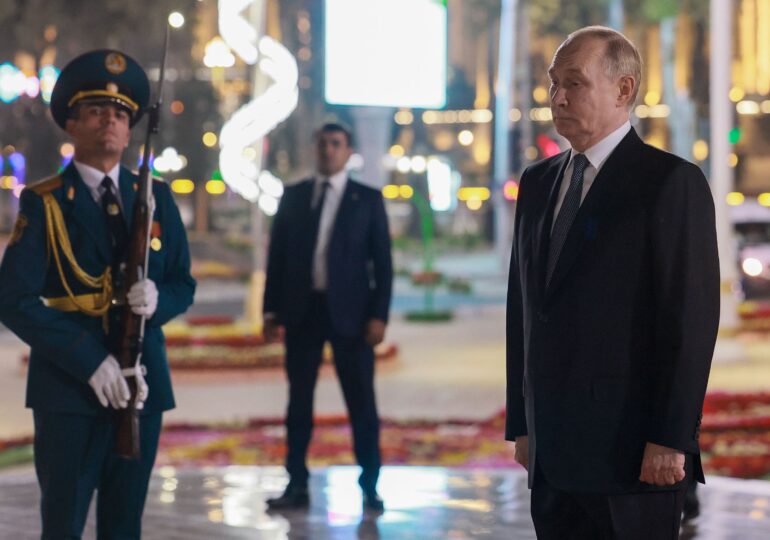Carlo Masala, a German researcher in the field of political science, has written a non-fiction volume based on reports, documents, and interviews that explores a question frequently raised in recent years: What happens if Russia wins the war in Ukraine? It is a scenario that has been analyzed and contemplated by many political leaders, military commanders, and defense strategy experts.
What will Vladimir Putin do if, for example, the regime in Kiev collapses, and Russia manages to install a Kremlin loyalist as the leader of Ukraine? What would be the next step taken by the President of Russia?
The question is crucial in the context of the need to develop new defense doctrines for NATO member states, especially for the alliance’s eastern flank and for the defense of the European Union.
The answer to this question will directly influence the development of the defense industry, military acquisitions, collaboration within the EU, as well as within NATO.
Carlo Masala begins his book with an episode set in 2028, in which Russian military forces provoke a crisis in Estonia, attacking the border town of Narva from the north and east, taking control of the border crossing points in the area.
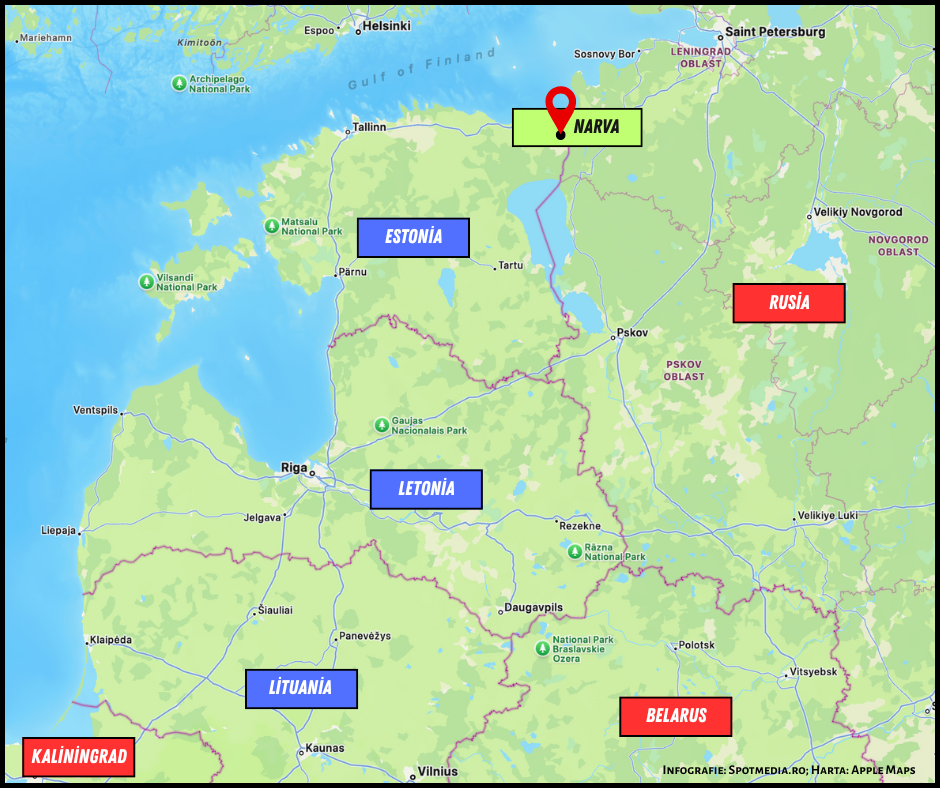
"People were awakened in the early hours by explosions. Two Russian brigades invade Narva from the north and east. The attackers... quickly overwhelm the Estonian soldiers at the border.
Russian soldiers encounter little resistance, and where they do, they quickly suppress it. They are supported by a portion of the local civilian population, which had been supplied with small-caliber weapons and machine guns in the preceding weeks and months.
Situated on the border with Russia, Narva is the third largest city in Estonia, with a population of 57,000 inhabitants. It was captured within a few hours. At sunrise, the Russian flag flies over the town hall tower. Videos of the flag-raising are posted on social media in real time, using the hashtag #DayOfReturn," writes Carlo Masala in the opening of the book "If Russia Wins."
The Gate of Focșani
Such an attack, as described by the German expert, could also occur in Romania if Ukraine and Moldova fall back under Kremlin influence.
It could unfold through the corridor of the Gate of Focșani, a geographical vulnerability of Romania, mentioned in recent weeks both by retired General Virgil Bălăceanu and by General Gheorghiță Vlad, the Chief of the Romanian Army's General Staff.
"The Gate of Focșani is a vulnerable point. I have said several times that NATO should treat the Gate of Focșani the same way it treats the Suwalki Gate," stated retired General Virgil Bălăceanu.
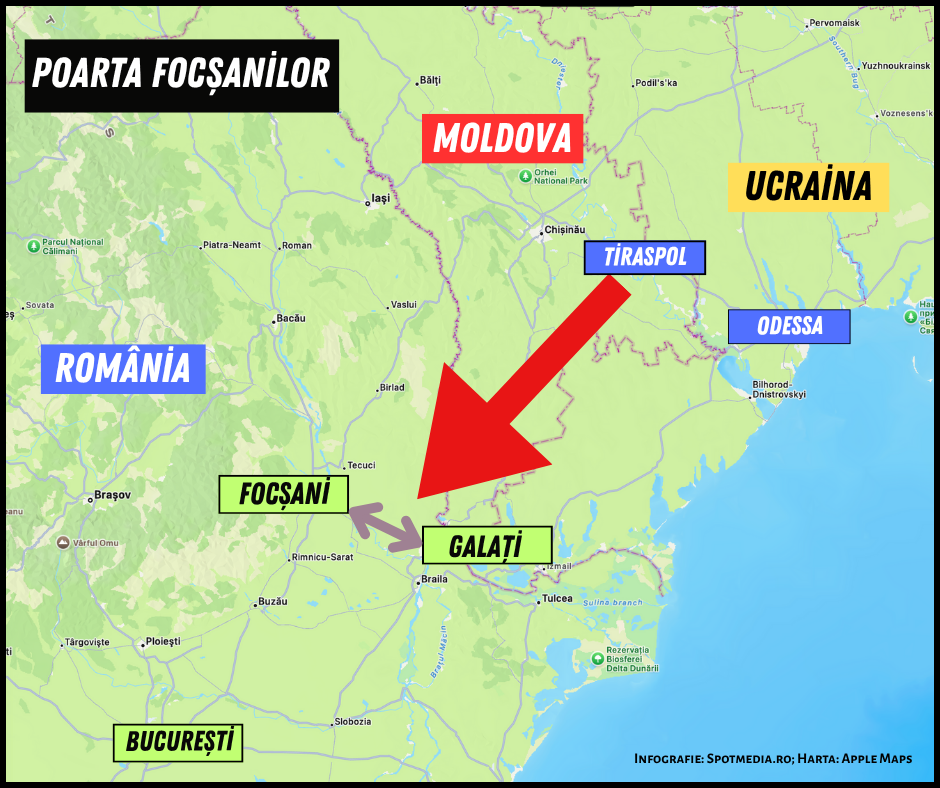
The area he refers to is a plain strip with a width of 80-100 kilometers, located between Focșani and Galați, at the eastern border of Romania with Moldova and Ukraine, very close to the mouth of the Danube.
The extremely flat terrain allows an enemy army to develop a combined attack without the possibility of defense, using terrain features such as the heights of mounds, hills, or mountains.
"The Gate of Focșani is a security issue just like the Suwalki Corridor for the Baltic countries and Poland. It's the revenge of geography. All mobility corridors, all operational-strategic directions are designed based on the geography of states.
For us, the Gate of Focșani, like for the Baltics, Suwalki, remains a vulnerability. We have in our plans all the capabilities involved so that vulnerabilities are eliminated. There is no concern, neither for Romanians living in Moldova, nor for Romanians in Transylvania or in the southern region of Romania.
The Alliance has all the determination necessary not to cede a single centimeter of NATO territory, and the Romanian Army even more so," explained General Gheorghiță Vlad, the commander of the Romanian military forces.
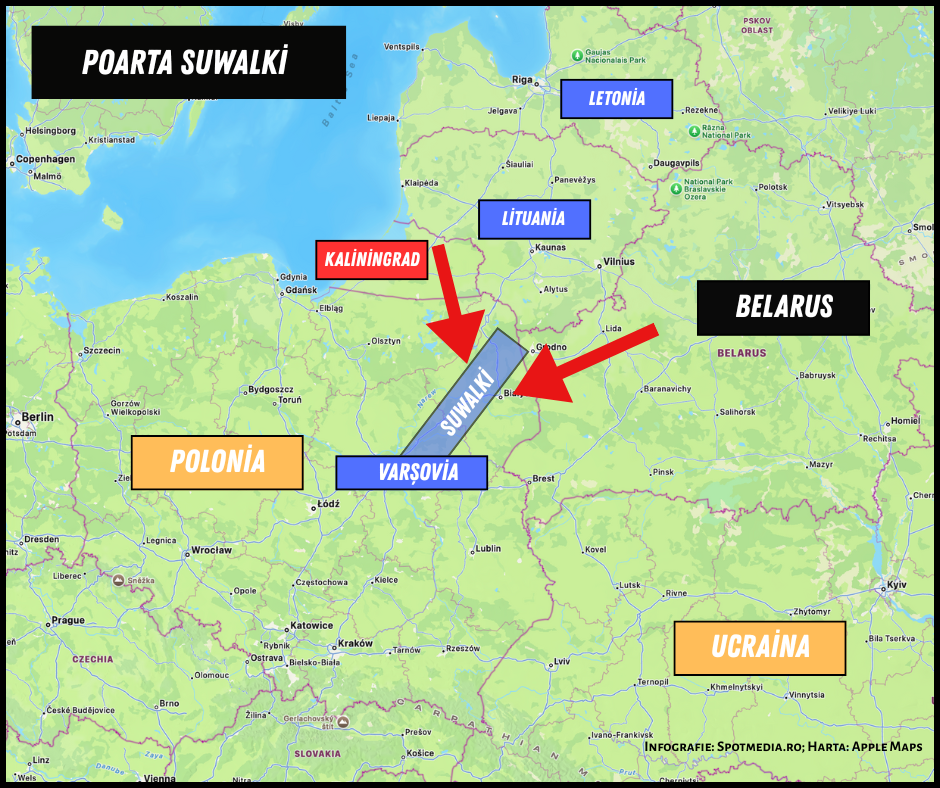
Why is Putin blocking peace negotiations?
Carlo Masala explains, based on data and statements from open sources, that Vladimir Putin is no longer seeking peace - neither in Ukraine nor elsewhere.
Russia has entered a logic of war, and Putin's authority is based on crisis and maintaining a state of emergency. This new reality of permanent war allows him to control institutions, agencies, and ministries, as well as to easily suppress any form of opposition.
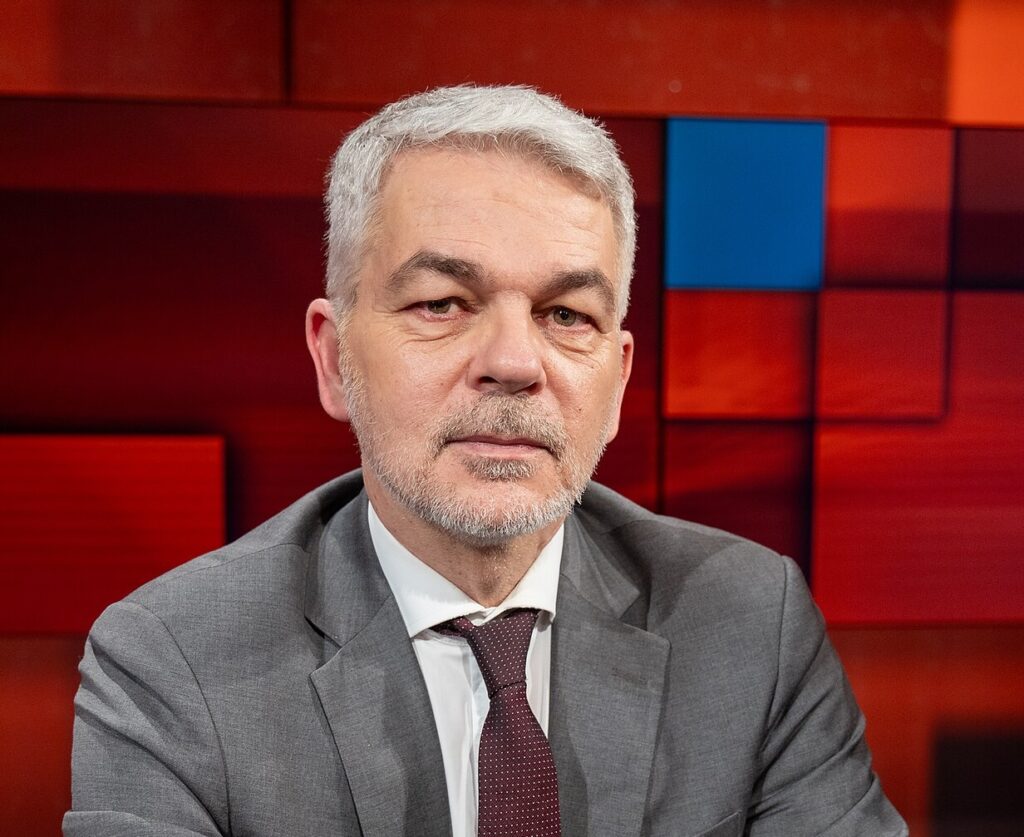
Ceasefire and a return to a peace economy would generate a series of internal dissatisfactions related to the loss of human lives on the front, supporting the injured, as well as a drastic decrease in the standard of living. All these drawbacks and tensions could turn a large part of the population against Putin.
The war mechanism that the Russian leader has created to maintain his power now prevents him from seeking a peace solution in Ukraine.
Immediately after Ukraine's surrender, critics emerge against those who vocally supported military and political aid for Ukraine during the war with Russia.
The argument primarily invoked by populist parties, both on the right and left, is best summarized by the words of the future French president from the Rassemblement National party (formerly the National Front).
During his campaign, he stated: Bellicose countries not only have almost ruined their own economies but have also needlessly prolonged this war - whose final outcome could have been achieved a year and a half ago - depriving thousands, if not hundreds of thousands of Ukrainians of the chance to be alive today.
Carlo Masala, the book "If Russia Wins"
Although Volodymyr Zelenskyy and the authorities in Kiev have shown willingness to compromise, including territorially, Putin has consistently brought up demands in negotiations that are impossible to accept. For example: the request for NATO to withdraw from Eastern European states or guarantees that Ukraine will never join the North Atlantic alliance and giving up the development of defense systems.
Putin's maximalist demands have blocked and continue to block any negotiation. Thus, the idea that Russia and Putin have embarked on an irreversible path is much closer to reality than any other approach.
Putin Provokes NATO
It is essential for European leaders and governments of democratic states to understand that the only realistic way to stop the war is conditioned by defeating Russia.
American journalist George F. Will, in an article in The Washington Post, recently observed that airspace violations in Romania, Poland, Denmark, and Germany confirm that Putin is looking for ways to generate a conflict with NATO.
His goal is not to end the war in Ukraine but to trigger others, create tensions in the European Union, destroy Western solidarity, and regain control not only over Ukraine but also over Moldova, followed by pressure to withdraw NATO from Eastern Europe, which Vladimir Putin still sees as rightfully part of Russia's sphere of influence.
"Putin stepped onto Donald Trump's red carpet in Alaska, then took none of the measures regarding Ukraine that Trump deemed necessary for Russia to avoid very serious consequences, as the American president called them.
Instead, Putin intensified Russian attacks. Familiar with Western hesitation, the Kremlin leader probably anticipated the reaction he provoked with his current series of contemptuous aggressions. Trump only stated that he dislikes the situation created," wrote George F. Will for The Washington Post.

